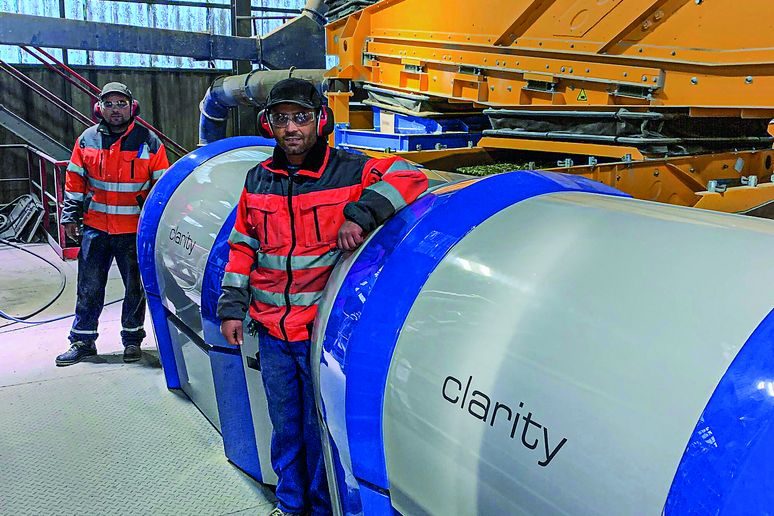Vetropack Switzerland investing in new glass sorting machines
Recycling used glass has hugely improved the environmental footprint of glassmaking within just a few decades. However, the used glass contains a considerable amount of foreign substances that increase production costs. This is why the Vetropack plant in St-Prex purchased two glass sorting machines last year.
Glass is a natural material and is one hundred per cent recyclable without compromising on quality. Using used glass gives glassmaking a much smaller environmental footprint than using primary raw materials. In order for used glass to become a high-quality secondary raw material, however, all foreign substances and extraneous matter must be removed during processing. After being presorted manually, the used glass reaches the recycling station, where the glass is separated from the foreign substances using compressed air and other separation systems.
Between 300 and 350 tonnes of used glass is sorted and processed daily at Vetropack's plant on Lake Geneva. Used glass makes up a substantial 80% of total production in St-Prex – more than anywhere else in Vetropack Group. This high used glass content allows for an energy saving of almost 25%.
The quality of recycled glass in Switzerland is higher than in other countries. Even in St-Prex, however, foreign substances can still make up some 9% of the used glass supplied to the plant. Impurities and bubbles in finished bottles are the result of foreign substances which were not filtered out. These bottles remain in quality control and are removed from the process. Only the best-quality glass packaging reaches the customer.
Increased efficiency
Filtering out foreign substances makes production more expensive. For this reason, St-Prex decided to purchase two Clarity glass sorting machines in 2019. One machine processes 14 tonnes of used glass per hour. Processing follows a two-shift pattern from Mondays to Fridays. The used glass then goes through several more stages of processing.
The new Clarity sorting machines made by Binder + Co do much more than just visual sorting: Clarity is also equipped with various sensors. Not only do these sensors work together, but the data they capture is also linked to evaluation algorithms devised specifically for this purpose. This enables simultaneous sorting of heat-resistant glass ceramic without using X-ray fluorescence. The high level of detection quality and rapid sorting diverter technology ensures a high degree of accuracy in the separation process. The two sorting machines process cullet sizes of between 10 and 20 millimetres and between 20 and 80 millimetres respectively.
This purchase allows Vetropack to work much more precisely with the technology currently available and spot even the tiniest bits of metal and aluminium using detectors. Clarity takes the burden off downstream process steps, increases production quantities and product quality and reduces processing costs.
